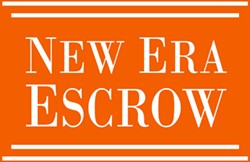
As a real estate agent, you play a critical role in the home buying process and this role continues well into the closing. Whether you represent the buyer or the seller, the closing process represents the end of the residential real estate sales cycle. Hence, it can easily be said that closings represent the most important part of the real estate sales process.
So it should come as no surprise that there are high hopes, where closings are concerned. However, in order to meet expectations you must first know what they are here’s a quick primer.

For buyers, closing day represents an end to house hunting, negotiating and mortgage shopping. On the other end of the table, the seller finds relief in knowing that she’ll no longer have to deal with poor offers, home walk-throughs, and the like. Instead, the buyer looks forward to receiving the keys and the seller anticipates walking away from the transaction with a nice windfall. However, before any of this can take place there are several milestones you’ll need to help your clients with if they are to finalize the transaction.
Table of Contents
ToggleTHE WALK-THROUGH INSPECTION
The final walk through in a residential real estate closing is usually organized and conducted the day prior to closing. In most instances the buyer expects the seller to have acted in good faith, while the seller looks forward to bringing the entire process to a close. It is also understood that problems arising during the inspection can cause the closing to be delayed.
As such, the walk through carries meaning for both parties, but it is of particular importance to the buyer, who expects the home to be in the same condition at closing as it was during the walk-through. Alternatively, if the inspection reveals issues with the property’s condition, both parties may agree to address how the necessary repairs, renovations or modifications will be handled in the contract.
WELL-ORGANIZED REAL ESTATE CLOSING DOCUMENTS
It is important to remember that both the buyer and seller expect a smooth and hiccup-free closing. All parties to a closing have their role to play depending on their professional capacity, but the client’s primary concern tends to be making it through the paperwork.

Likewise, the buyer and seller look to you, as the agent, to ensure that the transfer and mortgage documents represent the agreed terms so that the only thing remaining is getting both parties signatures. For this to happen, all the documents must be in order and ready for signing prior to closing. This requires that you review the documents in advance of the closing.
PROPER FEE SETTLEMENTS
Your clients expect all closing costs, escrow payments, and other fees be settled and distributed according to the terms of the contract. This typically requires careful coordination between you and the escrow company or settlement agent. While this step tends to go unnoticed by clients, if not properly handled it can delay or derail the entire closing.
KEY EXCHANGE
In the typical home sale, both the buyer and seller look forward to exchanging keys at the end of the closing process. Of course, the seller can’t transfer them to the buyer until all of the documents have been signed and the applicable documents have been recorded by the local County Recorder’s Office (called “Confirmation”), as this signifies the legal transfer of the property from the seller to the buyer. Your Escrow Officer will advise when Confirmation is received!
Above all, when it comes to closings, your clients expect you to provide a seamless experience by handling the technical matters for them so that they are not pushed too far outside of their comfort-zone. Understanding your client’s expectations, helps you avoid problems that may arise during the closing, ultimately paving the way to wow your clients and fully address their concerns.

Sidney Richardson. (2022, June 15). What To Expect When Closing On A House Remotely. Rocket Mortgage.
Lauren Nowacki. (2022, July 12). Closing On A House: Your Step-By-Step Guide. Rocket Mortgage.
